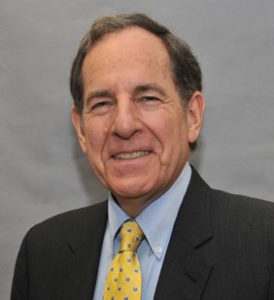Imagine Boston 2030 book review: Ira Jackson on 'Common Ground'
Anthony Lukas’ classic portrayal of busing in Boston, "Common Ground," was so beautifully and powerfully written that it quickly became a national best seller.
Tony was recognized with a Pulitzer Prize. A gripping, spellbinding and poignant account of a turbulent decade as seen through the eyes and the agonies of three families, Common Ground is a great place to begin to understand Boston’s incredible turnaround and some of the ingredients needed to continue Boston’s elusive quest to become that “City on a hill,” a beacon to all mankind.
Boston after the end of WWII had already lost 250,000 people. White flight was accelerating. The neighborhoods were deteriorating, crime was at all all-time high, racial tensions were raw, City government was a backwater, Quincy Market was abandoned, and the tallest buildings in town, other than the Pru, were the old John Hancock and the Customs House. Then along came court-ordered desegregation, which tore the City apart and almost led to an armed civil war. Busing was Boston’s Selma.As a boy growing up here, Boston looked to me like a black and white movie — an aging, decaying city with a proud past, and not much future. Today, of course, Boston is the envy of urban America. Neighborhoods are thriving, crime is at historic lows, the economy is soaring, and Boston appears to have almost as many construction cranes as Shanghai. GE decided to relocate its global headquarters to Boston because of our unique innovation eco-system, Boston is now the youngest city in the nation, and civic pride has become our global brand: Boston Strong.
Yes, we still have plenty of issues. The same week that GE made their big announcement, we also gained the distinction of having the worst inequality of any major city in America. We are still dealing with huge achievement gaps in our schools and wide divides based on class and race. And we are only just now beginning to comprehend our vulnerability to climate change. So we have our work cut out for us. But the story of our incredible turnaround from a city without much of a future to a city now ranked as world class, is remarkable, even breathtaking.
What are some of the lessons to be taken from the gripping 659 pages of Common Ground and Boston’s incredible turnaround and come-back from busing only forty years ago? Are any of the explanations of how Boston moved so far and so fast from the tragedy and violence of busing to where we are today relevant to thinking about where we go from here, and what we might do with Boston 2030?
Let me suggest at least four lessons from our recent past that may remain relevant to thinking about our future.
First, respect, tolerance and diversity matters. Busing was ugly, hateful and violent. Neighborhoods were pitted against one another and whites and blacks were literally at each other’s throats. A city, like any community, is all about people, and for people to find common ground they first need to listen to one another, to be civil with each other, and to show a modicum of respect for differences. That’s something we’re doing pretty well in Boston these days, it seems, but we have to keep at it. Boston’s turnaround began when Bostonians began to make room for and listen to the voices of blacks and Latinos and women and gays and immigrants and young people and so many others who historically had been left out and left behind the cold and rigid facade of the old Boston.
Second, leadership matters. I worked for Mayor Kevin White, was an ally of Ray Flynn, a partner to Tom Menino and consider myself a friend of Marty Walsh, so I’m not impartial. But I think it’s undeniable that without Kevin White’s powerful and uplifting vision, and Ray Flynn’s deep engagement (especially with the peaceful integration of public housing, in such stark contrast to court-ordered school desegregation), and Tom Menino and Marty Walsh’s unyielding determination and tenacity, Boston would remain a backwater. When Kevin White talked of Boston as a world class city he was ridiculed and lampooned. How far and fast we have come in such a short time; what a huge difference his vision and confidence and passion for our future made. We are still living the fruition of his vision and dreams for Boston.
Third, talent matters. Present company excepted, Kevin White attracted some of the best and the brightest talent available anywhere to City government: people like Barney Frank and Fred Salvucci and Paul Parks and Paul Grogan and Micho Spring. They and others who have followed were not only smart and innovative, they also loved politics and civic engagement, and they helped to make Boston City government a new frontier for experimentation and new ideas.
Finally: government matters. Cleaning up the dirtiest and most polluted harbor in America cost money, but it was transformational. The Big Dig was costly and complicated, but it unlocked the waterfront and helped to power our economy into overdrive. Little City Halls, Summerthing, Concerts on the Common, the new wing of the Boston Public Library, the Orange Line and the Southwest Corridor and the expansion of the Red Line into Quincy and the $4 billion modernization of Logan Airport and the emergence in UMass Boston of a major public research university on Columbia Point that is broadly representative of the City it serves—all these big projects required imagination, creativity, courage, financial resources, and a belief that government can be a force for good. They are a reminder that we find our common ground not only by treating one another with respect, not only by sharing a vision for the future, not only by giving everyone a place at the table and by embracing our differences, but also by using government as an instrument of the people to advance the common good.


